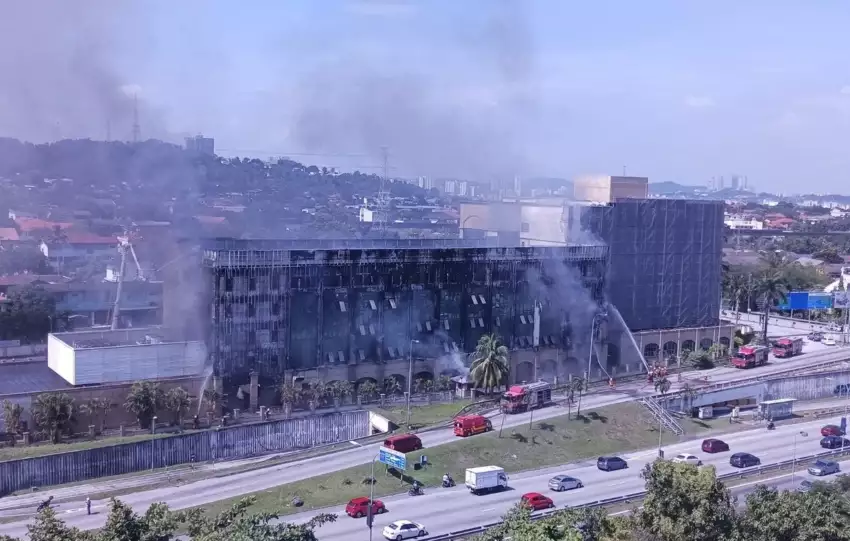RIYADH, Saudi Arabia, July 9, 2021 /PRNewswire/ — IMF staff have reaffirmed the continued recovery of the Saudi economy and the slowdown of the inflation of the Consumer Price Index (CPI), stating that they project the non-oil GDP growth will reach 4.3% this year and 3.6 % in 2022. IMF expects that the private sector will lead the growth this year to reach 5.8%, and it will continue in the medium and long term with an average growth of 4.8%. This statement was in the Concluding of the 2021 Article IV consultation, which was released recently. The staff commended the Saudi government’s swift and decisive response to Covid-19 Pandemic, and the early creation of a Supreme Crisis Committee to manage and coordinate the efforts between government agencies, along with the ambitious reforms that were being implemented earlier within the framework of the Saudi Vision 2030 played an instrumental role in helping the Saudi economy overcome the pandemic, the growing digitization of government and financial services, reforms to increase labor market mobility, and strong policy buffers all meant the economy was well equipped to manage the COVID crisis. Moreover, the Private Sector Financing Support Program,” launched by the Saudi Central Bank, contributed to supporting SMEs in facing the challenges of the pandemic.
The IMF staff reaffirmed also that the policies to support the non-oil economy have been successful, that the creation of the High-Level Crisis Response Committee” was central to effectively and pro-actively managing the crisis, and that strict early containment and health mitigation measures limited cases and fatalities.
On the current economic performance, the staff believe that the “Shareek” partnership program will offer incentives through the tax system, access to credit, and regulatory reforms to encourage investment. Moreover, they believe that the labor market reforms (cancelation of Kafala sponsorship system) will result in a more competitive labor market that is more attractive to higher skilled expatriates. On the ongoing reforms to boost female employment, the staff project a continued rise in female labor force participation rates (increased by 13 percentage points to over 33 percent over the past two years.). The staff also projected that the credit to the private sector will grow strongly, boosted by lending for housing and to SMEs. The staff project the new social security law to be an important step to strengthen the framework for providing income support to the less well off.
The IMF staff indicated that the potential of renewable energy in Saudi Arabia is huge and that it will attract domestic and foreign private investors. The staff welcomed the high-level announcement of the Saudi Climate Strategy and the commitment from the leadership of the country to reducing GHG emissions.
On public finance and transparency, the IMF staff confirmed that significant progress has been made recently to increase accountability and transparency in public procurement, including through “Etimad Platform”. They commended the impressive pace of capital market reforms to increase liquidity and depth to local equity and bond markets including giving greater access to foreign investors and introducing financial derivatives products. The staff pointed out that the Banking system liquidity is at very comfortable levels.
The Concluding Statement of the 2021 Article IV consultation touched on financial inclusion and fintech, indicating that the fintech sector in Saudi Arabia is maturing rapidly with support from SAMA and the CMA. The Concluding Statement pointed out that the peg remains the best exchange rate option, as Saudi has high reserves that are more than adequate to maintain the peg.
His Excellency the Minister of Finance, Mr. Mohammed Al-Jadaan, said that the Concluding Statement highlighted the current and future indicators of the Saudi economy and that it succeeded in overcoming many of the obstacles and challenges that the world underwent this year and last year. This contributed to achieving the financial sustainability that enhanced the economy’s robustness and strength. His Excellency stressed the instrumental role of the economic and structural reforms that the Saudi government implemented under the Saudi Vision 2030 and the effect they had in achieving a sustainable and comprehensive economy. The IMF staff also commended the Kingdom’s efforts to mitigate the economic, social, and health effects of Covid-19 Pandemic.
It is notable that the IMF staff mission has issued previously a statement at the conclusion of the 2021 Article IV consultation for the Kingdom of Saudi Arabia, which was held during April of 2021. This Concluding Statements affirms the initial results that the previous statement reached.


